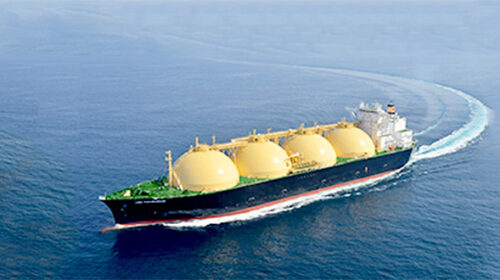Amid widespread electricity shortages, Pakistan failed to find a bidder for three LNG slots and received the highest-ever rate for another slot for the last week of July as European customers lap up spot market quantities to compensate for Russian supply disruption.
State-run Pakistan LNG Ltd (PLL) floated a tender on June 16 for four cargos — one each in the first and second weeks, and two in the last week, of July. No bidder came up for July 2-3, July 8-9 and July 25-26 delivery windows.
This was the third futile attempt by PLL to have an LNG cargo in the first week of July. The earlier two tenders issued on May 31 and June 7 attracted two and one bidder, respectively, but none was technically responsive. Hence, the bids were returned unopened.
The only bid this time for July 30-31 was from QatarEnergy Trading. It came at a record-high price of $39.8 per million British Thermal Unit (mmBtu). Sources said it’d be a challenging for the government to accept such a high rate and that it should go for loadshedding or maximise generation from other fuels.
The highest-ever bid that Pakistan accepted since it started LNG imports in 2015 was at $30.65 per mmBtu in November 2021.
The sources said suppliers in the spot market, besides producers in the Middle East, have been influenced by the US government to ensure maximum LNG supplies to the European countries that were ready to lift the commodity at any price to meet shortages caused by supply disruptions from Russia.
The re-gasified LNG prices in Pakistan, despite a large majority of cargos coming from cheaper long-term contracts, have already gone up 40 per cent to $22-24 per mmBtu in recent months owing to a string of spot cargos procured by the new unity government in its first month in office.
Coupled with rising coal and oil prices, these LNG rates have increased electricity fuel costs more than 100pc, which is evident from Rs7.95 per unit additional monthly adjustments claimed by ex-Wapda distribution companies (Discos) and over Rs11.38 per unit by K-Electric Ltd for the next month.
Pakistan has two long-term contracts with Qatar — one involving six monthly cargos at 13.37pc of Brent signed by the previous PML-N government and two monthly cargos contracted by the PTI government at 10.2pc of Brent. The remaining four cargos a month are mostly arranged through spot tenders.
The state-run LNG importers — PSO and PLL — would be better off with even expensive imports because they earn a windfall profit on account retainage and margins at the rate of 3.22pc and 3pc, respectively, which obviously goes up with higher import prices.
Pakistan has been in the grip of power outages that have ranged between three and seven hours a day in recent months. The previous government showed reluctance in ordering spot LNG tenders amid high prices while long-term suppliers defaulted almost a dozen times in the winter because of a volatile international market. The authorities have also been struggling to arrange furnace oil to make up for the LNG gap. Additional monthly fuel cost adjustments more than doubled over the reference prices.
Against firm power-sector demand of up to 900 million cubic feet a day, gas firms struggle to meet even half of that, causing countrywide power cuts. This comes at a time when the PSO receivables have surpassed Rs600bn and the Petroleum Division has reported a gross liquidity requirement of about Rs1.98tr for the first quarter of the next fiscal year for fuel imports to minimise load-shedding.
From June-September, the government initially planned to arrange a maximum of 12 LNG cargos each month to meet power-sector demand. Due to the Russian-Ukraine war and global demand-supply dynamics, the price of spot LNG cargos has gone up, making it unaffordable for Pakistan. Besides LNG, PSO is also importing furnace oil, which is adding to its financial constraints.
PSO and PLL have presented their estimated liquidity requirements during summer months under which the former needs Rs1.7tr — Rs427bn in June, Rs445bn in July, Rs413bn in August and Rs414bn in September for both LNG and furnace oil.
On the other hand, PLL has sought a total of Rs278bn for four months, including Rs98bn in the current month, Rs44bn in July, Rs80bn in August and Rs56bn in September.







